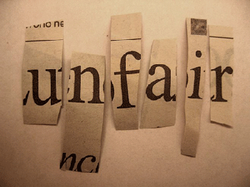 The other month, I found myself in a conversation with a long-time family friend from the church I grew up in. She’s a teacher in a public school and she began telling me about some of her frustrations when I mentioned that I do antiracism training. She’s white, and her school has seen a dramatic increase in racial diversity over the last decade or so, after being primarily white. She told me about a time when she said in class, “Why do we celebrate Black History Month? Shouldn’t we be remembering the contributions of African Americans all year?” (I don’t remember the precise issue: it may have been related to Martin Luther King, Jr., rather than Black History Month, but this is the gist.) Unfortunately, one of her African American students reported to her parents that Ms. ____ said that there shouldn’t be a Black History Month, missing the context that Ms. ____ was wanting to encourage a more robust celebration of African American history. The student’s upset mother came in for a meeting, and, as my friend tells it, was unable to hear or believe that Ms. ____ wasn’t actually discounting African American heritage. Understandably, this really troubled my friend who truly wants to do right by all of her students. She felt that this student and parent treated her unfairly. And I can empathize with this. In our conversation, I mostly listened and offered some comments about the ongoing impacts of racial discrimination and white privilege, but we didn’t have time to let the conversation play out on its own as my children were needing to move on. Here’s what I wish I would have had the time and words to say…. ____, I know that you are a well-meaning and decent person who wants to treat all of you students fairly and help them succeed. I know that it hurts to have your words taken out of context and then be accused of “being racist.” I’ve been there. Both of us want to be seen as well-meaning and decent people. I’ve learned, however, that sometimes my desire to be seen as a decent person can make me less empathetic toward people whom I’ve unintentionally hurt. When I’m defensive, I don’t have room to be empathetic because I’m focusing on myself. If I can be empathetic at those moments (or, more likely, after the moment has passed), I stop and think about all the discrimination that People of Color have experienced. They know their experience better than I do, but knowing what I do know about racial discrimination, I would find it really hard to trust that White people have my and my children’s best interests at heart. Especially White people who are in positions of authority and influence. As a teacher, you represent not yourself as an individual, but the education system. I’m sure you know some of the realities yourself: the achievement gap, underfunding of minority schools, harsher punishments for students of color, etc. Not to mention the place that access to good public education has within the African American struggle against discrimination. No matter how decent and fair you are as an individual, you will always represent the education system which has a long and continuing history of serving Black children more poorly than White children. I wish that every parent could treat every teacher as an individual rather than as part of the institution, but I can understand why African American parents might sometimes have a hard time trusting even good, decent White teachers. Their experience has taught them that it is often safer for them and their children if they don’t trust White people and institutions. And when I say “safer,” I don’t just mean that they might get their feelings hurt. People of Color can be relegated to low-earning job tracks, get or remain sick, and be killed when they trust institutions (schools, hospitals, law enforcement) set up by White people. It may seem like I am just resigning myself to being treated unfairly by angry Black people. But my experience is that I am treated unfairly by angry and/or entitled White people at as great a rate as I am by People of Color. So, yes, people of all races will treat me unfairly sometimes. And when that happens across racial lines, it helps me to remember that I personally may only be the unlucky representative of a larger system, so I don’t have to take the response personally. I can try to empathize with the person’s experience within a society that is set up to benefit White people and offer crumbs to everyone else: “I bet you have to deal with this kind of thing a lot. I’m sorry that what I said gave you one more thing to confront. What I can do to make it right?” That’s hard to do in the moment, and it isn’t a magic phrase that will automatically sooth everyone’s hurt feelings. And empathy itself won’t do away with institutional racism, but it can help strengthen the relationships that are essential to organizing for institutional change. Though I can’t hold myself up as a shining example of empathy, it’s something I aspire to.
0 Comments
Leave a Reply. |
AuthorRoots of Justice trainers and friends share reflections on historical and current events Archives
April 2024
Categories
All
|
© Roots of Justice, Inc. All rights reserved.

 RSS Feed
RSS Feed